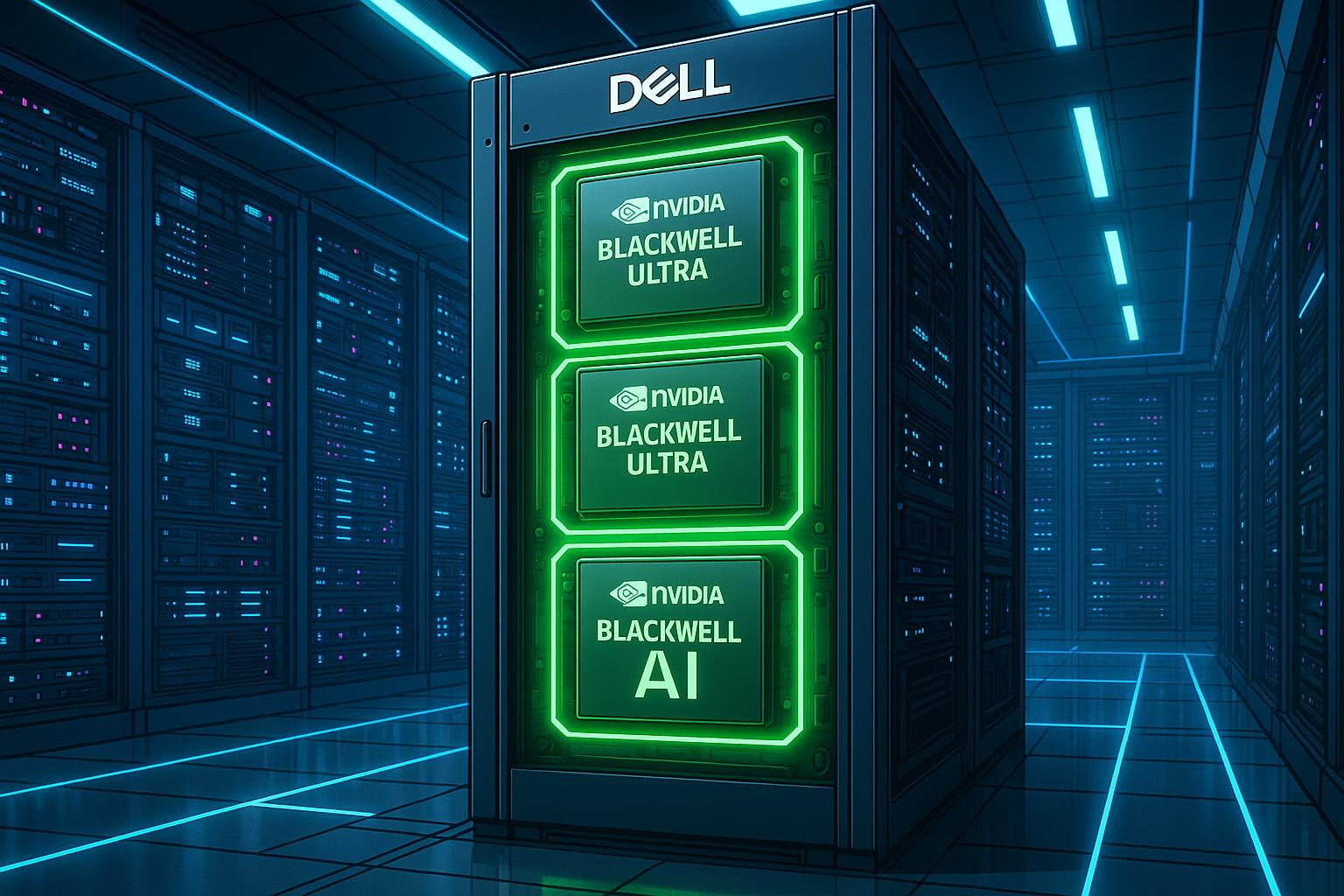Dell Technologies has recently launched a new line of servers powered by Nvidia's Blackwell Ultra chips, reflecting a strategic response to the surging demand for artificial intelligence (AI) infrastructure. These cutting-edge servers, available in both air-cooled and liquid-cooled formats, can be equipped with up to 192 Nvidia chips, with a potential for custom configurations supporting as many as 256 chips. The company touts these new models as capable of training AI systems up to four times faster than their predecessors, positioning them as pivotal tools for enterprises looking to enhance their AI capabilities.
Arthur Lewis, President of Dell’s Infrastructure Solutions Group, commented on the competitive pricing strategy, indicating strong market interest in their AI offerings. He noted, “There’s a lot of interest on what's next,” highlighting the rapid evolution of AI technologies. This mirrors trends across the industry, as firms scramble to meet the escalating computational demands associated with AI workloads, particularly in light of advancements in large language models.
Despite the promising outlook, Dell.is navigating significant challenges, notably the high production costs associated with these advanced systems. Analysts have observed that both Dell and competitors like Super Micro Computer are grappling with pressure on profit margins due to the intricate demands of AI hardware creation. In February, Dell projected a decline in its adjusted gross margin for fiscal 2026, underscoring the financial complexities tied to maintaining profitability while expanding their AI infrastructure offerings.
Dell's new servers will also be compatible with Nvidia’s upcoming Vera central processing units, which are set to supersede the existing Grace series and will further optimise performance for AI tasks. This aligns with Nvidia’s own roadmap, as the company prepares to unveil subsequent iterations of its chips in the coming years, including the Vera Rubin series set to roll out in 2026.
In a bid to broaden its scope in AI development, Dell has also introduced the 'Pro Max Plus' laptop. This new device features a neural processing unit capable of processing substantial AI models directly on the hardware, thereby reducing reliance on cloud services. Such innovations are part of a broader initiative by Dell to empower developers and enterprises alike to harness the full potential of AI without incurring ongoing cloud costs.
This strategic emphasis on AI tools underlines the firm’s commitment to meeting the needs of a rapidly evolving market. Furthermore, it reflects a wider industry trend, where companies are not only focusing on hardware but also enhancing their overall ecosystem of product offerings. The launch of these AI-focused servers and laptops illustrates Dell's intention to capture a larger share of the burgeoning AI landscape while navigating the complexities posed by competition and production costs.
As enterprises increasingly turn to AI-driven solutions, companies like Dell are aiming to solidify their positions as key players in this competitive arena. With a robust server lineup capable of adopting the latest Nvidia technology, Dell is poised to play a significant role in shaping the future of enterprise AI infrastructure. By fostering innovation and maintaining a focus on profitability through its networking and storage sales, Dell looks to ensure its long-term viability in an increasingly AI-centric business environment.
Reference Map
- Paragraph 1: 1, 2
- Paragraph 2: 1, 2, 7
- Paragraph 3: 1, 2, 7
- Paragraph 4: 2
- Paragraph 5: 1, 3
- Paragraph 6: 4, 5
- Paragraph 7: 1, 2, 6
- Paragraph 8: 1, 2, 7
Source: Noah Wire Services
